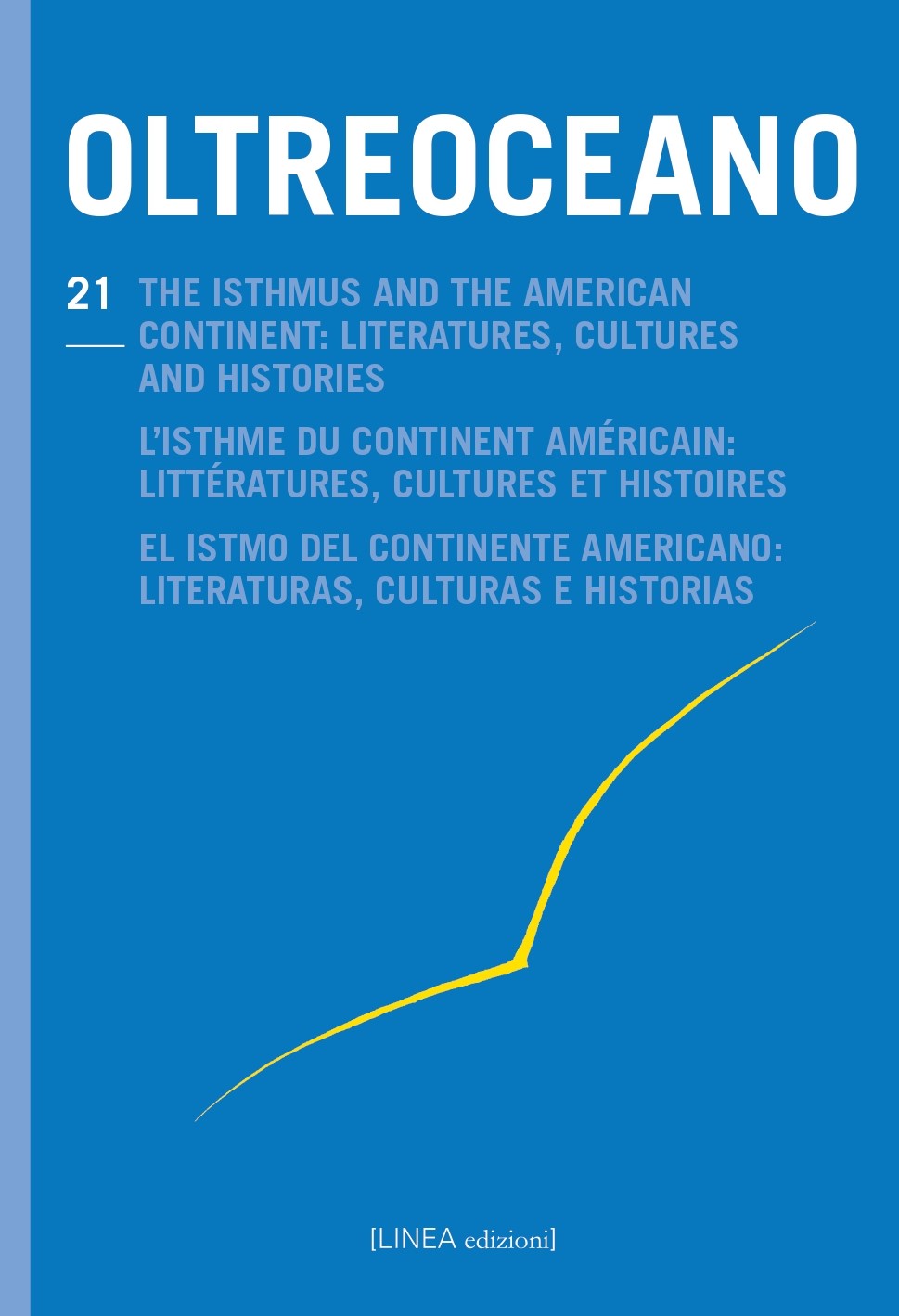Migrations, Exploitation and Transculturation: the Maya in Cuba
DOI:
https://doi.org/10.53154/Oltreoceano71Keywords:
Mayas in Cuba, caste war, slaveryAbstract
In the context of human trafficking in the Spanish-speaking Caribbean, it is important to note the phenomenon of the forced importation of Yucatec Mayas to Cuba. The Yucatec Maya presence is attested in Havana since the sixteenth century, when the first Spanish conquistadors had the “licencia” to import to Cuba rebellious Maya captured in the conquest campaigns and in the “entradas” in the free territories of Yucatan. The forced migration of Yucatec Mayas to Cuba was not the only phenomenon recorded in the Caribbean indigenous diaspora, since indigenous allies, from the Calusa and Tequesta communities of Florida, also had moved and settled in Havana from the 16th century onwards, in this case with a voluntary migration, to strengthen their alliance with the colonial government. On the other hand, hundreds of other indigenous rebels to colonial power, the Apaches and Chichimecas of the northern region of New Spain, were captured in the pacification expeditions of that region and integrated as a servile force in the constructions, fortifications and port works of Havana, in addition to the work in the island’s sugar mills and tobacco plantations.
Although the movement of the indigenous population to Cuba took place throughout the colonial period, this forced trafficking increased in the mid-nineteenth century, during the so-called Caste War, in which the Maya rebels captured by the Yucatecan government were forced to work in Cuban houses and fields in servile conditions. The lack of documentation does not allow us at the moment to have a clear understanding of the cultural life of the Mayas in Cuba, but from the limited data known today it is possible to get a first approach to their condition of existence, their identity and their survival until the present time. In this paper, I intend to present the servile condition of the Yucatec Mayas in Cuba for a possible critical approach to their historical, cultural and anthropological study.
Downloads
References
Álvarez Cuartero, I. (2007): De Tihosuco a La Habana: La venta de indios yucatecos a Cuba durante la Guerra de Castas. Studia Historica. Historia Antigua, 25, pp. 559-576.
Álvarez Cuartero, I. (2012): De españoles, yucatecos e indios: la venta de mayas a Cuba y la construcción imaginada de una nación. Clio, Revista de Pesquisa Histórica, 30, 1, pp. 1-20.
Farris, N. (2012): La sociedad maya bajo el dominio colonial. México: Artes de México.
Hoffmann, O. (2014): British Honduras: the invention of a colonial territory. Benque Viejo: Cubola Production.
González Navarro, M. (1968): La guerra de castas en Yucatán y la venta de mayas a Cuba. Historia Mexicana 18, 1, pp. 11- 34.
Lapointe, M. (1997): Los mayas rebeldes de Yucatán. Mérida: Maldonado.
Macías Zapata, G. A. (2002): La Península fracturada. México: CIESAS.
Menéndez, C. (1923): Historia del infame y vergonzoso comercio de indios vendidos a los esclavistas de Cuba por los políticos yucatecos desde 1848 hasta 1861. Mérida: Talleres Gráficos La Revista de Yucatán.
Novelo, V. (2012): Migraciones mayas y yucatecas a Cuba; notas etnográficas. Revista Brasileira do Caribe, 25, 13, pp. 159-175.
Novelo, V. (2013): Migraciones mayas y yucatecas a Cuba. Dimensión Antropológica, 59, 20, pp. 126-146.
Sarusky, J. (1986): Los fantasmas de Omaja. La Habana: Unión.
Uc Sánchez, M. J. (2011): Tráfico de indígenas mayas a Cuba. Gaceta universitaria APAUADY, 21, pp. 42-51.
Valverde Valdés, M. del C. (2007): La Guerra de Castas peninsular. Encuentros y contradicciones. En M. del C. Valverde Valdés (Ed.), La resistencia en el mundo maya (pp. 141-151). México: UNAM.
Vázquez Cienfuegos, S. & Santamaría García, A. (2013): Indios foráneo en Cuba a principio del siglo XIX: historia de un suceso en el contexto de la movilidad poblacional y la geoestrategia del imperio español. Colonial Latin American Historical Review, 18, 1, pp. 1-34.
Villalobos González, M. E. (2006): El bosque sitiado. Asaltos armados, concesiones forestales y estrategias de resistencia durante la Guerra de Castas. Mérida: Colección Peninsular.
Yaremko, J. (2016): Indigenous passages to Cuba, 1515-1900. Gainesville: University of Florida Press.
Zorrilla, J. (1882): Recuerdos del tiempo viejo, II. Madrid: Tipografía Gutenberg.
Downloads
Published
How to Cite
Issue
Section
License

This work is licensed under a Creative Commons Attribution-NonCommercial-ShareAlike 4.0 International License.
The authors undertake to comply with the following conditions, which are considered accepted at the time of submission of their contributions.
The sending of a text implies that it is unpublished and not submitted to be published elsewhere.
1. If accepted, the author shall confer on the publisher the right to publish and distribute it both in paper form and in the online electronic edition. The published articles will be downloadable and made available in open access.
2. Provided that it correctly indicates that the first publication took place in the journal Oltreoceano. Rivista sulle migrazioni the author has the right to: a) reproduce the article in separate extracts or collected in a volume; b) publish the article on their personal website or teaching site provided that these sites are of a non-commercial nature; c) deposit the article in online archives of a non-commercial nature, linked to the institution they belong to or as part of projects for the non-commercial dissemination and open access of scientific works.
The use of contributions by third parties, for commercial or otherwise unauthorized purposes, is not allowed. The publisher declines all responsibility for the unauthorized use of the material published in the journal.












